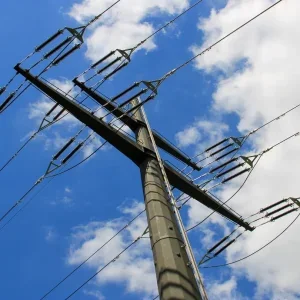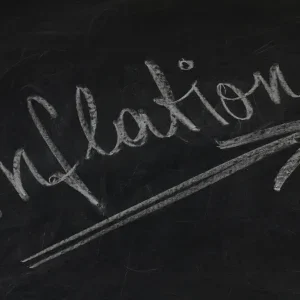
The energy industry, a cornerstone of modern civilisation, is not immune to the pervasive issues of misinformation and disinformation. As the world grapples with climate change, transitioning to renewable energy, and ensuring energy security, the spread of inaccurate information can have dire consequences. This article delves into the nature of misinformation and disinformation within the energy sector, explores the risks and impacts, and highlights strategies to mitigate these challenges.
Understanding Misinformation and Disinformation
Misinformation refers to false or misleading information shared without malicious intent, often due to a lack of knowledge or awareness. Conversely, disinformation is deliberately deceptive, spread with the intention to mislead or manipulate public opinion.
The Role of Social Media and Digital Platforms
In today’s digital age, social media and online platforms are primary vectors for misinformation and disinformation. The rapid dissemination of information, coupled with algorithms that prioritise engagement over accuracy, can amplify false narratives. For the energy industry, this can mean widespread misconceptions about energy sources, policies, and technologies.
Common Misconceptions in the Energy Sector
Several misconceptions plague the energy sector, affecting public perception and policy decisions. Here are a few prominent examples:
Renewable Energy Myths
- Intermittency and Reliability: A prevalent myth is that renewable energy sources, such as solar and wind, are too intermittent to be reliable. While it is true that these sources are variable, advancements in energy storage and grid management are significantly mitigating these issues.
- Cost Competitiveness: Another misconception is that renewable energy is prohibitively expensive. In reality, the cost of solar and wind energy has decreased dramatically over the past decade, often making them cheaper than fossil fuels.
Fossil Fuel Narratives
- Clean Coal: The term “clean coal” is often used to suggest that coal can be made environmentally friendly. While technologies exist to reduce emissions, coal remains a significant source of pollution and greenhouse gases.
- Energy Independence: The narrative of achieving energy independence through domestic fossil fuel production overlooks the broader benefits of diversifying energy sources, including renewables, for true energy security.
The Impact of Misinformation and Disinformation
The spread of false information in the energy sector can have several detrimental effects:
Policy and Regulatory Decisions
Misinformation can influence policy makers, leading to misguided regulations or the delay of essential reforms. For instance, exaggerated claims about the costs of renewable energy can hinder investment and policy support for clean energy initiatives.
Public Perception and Behaviour
Public perception is crucial in democracies where energy policies often require popular support. Misconceptions about the reliability and cost of renewable energy can lead to resistance against wind farms, solar projects, and other clean energy infrastructure.
Investment Risks
Investors rely on accurate information to make informed decisions. Disinformation can distort market signals, leading to suboptimal investments and financial losses. For example, exaggerated claims about the decline of fossil fuels can prematurely devalue stocks in traditional energy companies.
Case Studies in Energy Misinformation
The German Energiewende
Germany’s ambitious energy transition programme, Energiewende, has been the subject of extensive misinformation. Critics often claim that the programme has led to skyrocketing electricity prices and an unstable grid. However, detailed analyses reveal that while there have been challenges, Energiewende has significantly increased renewable energy capacity and reduced emissions.
The Fracking Debate in the United States
Hydraulic fracturing, or fracking, has been both lauded as a boon for energy independence and condemned for its environmental impacts. Disinformation campaigns on both sides have muddied the waters, making it difficult for the public and policymakers to discern the actual risks and benefits. Comprehensive, unbiased studies are essential to navigate these complex issues.
Strategies to Combat Misinformation and Disinformation
Addressing misinformation and disinformation in the energy sector requires a multi-faceted approach:
Enhancing Public Literacy
Improving public understanding of energy issues is crucial. This involves:
- Educational Campaigns: Governments and industry stakeholders can launch educational campaigns to provide accurate information about energy sources, technologies, and policies.
- Media Literacy: Enhancing media literacy can help the public critically evaluate the information they encounter, reducing the spread of falsehoods.
Leveraging Technology
Technology can be both a source of and a solution to misinformation. Key strategies include:
- Fact-Checking Tools: Integrating fact-checking tools into social media platforms can help users identify false information.
- Data Analytics: Using advanced data analytics to monitor and counteract disinformation campaigns can be effective. For instance, identifying and addressing coordinated disinformation efforts early can prevent widespread dissemination.
Collaboration Across Sectors
Combating misinformation requires collaboration between governments, industry, academia, and civil society. Key initiatives include:
- Public-Private Partnerships: These partnerships can pool resources and expertise to tackle misinformation. For instance, energy companies can work with academic institutions to conduct and disseminate unbiased research.
- Regulatory Frameworks: Developing and enforcing regulations that hold entities accountable for spreading disinformation can be a powerful deterrent.
Promoting Transparency and Accountability
Transparency is a cornerstone of trust. The energy industry can enhance transparency by:
- Open Data Initiatives: Providing open access to energy data can enable independent verification and foster trust.
- Accountability Mechanisms: Establishing clear accountability mechanisms for misinformation can deter false claims. This could involve penalties for spreading disinformation or incentives for accurate reporting.
Conclusion: Building a Resilient Energy Future
The energy industry stands at a critical juncture. As it navigates the transition to a more sustainable future, combating misinformation and disinformation is essential. By enhancing public literacy, leveraging technology, fostering collaboration, and promoting transparency, the industry can build a resilient future grounded in accurate information and informed decision-making.
In this era of information overload, the responsibility lies with all stakeholders to ensure that the narrative driving the energy transition is based on facts and scientific evidence. Only then can we hope to achieve a sustainable, secure, and prosperous energy future for all.






